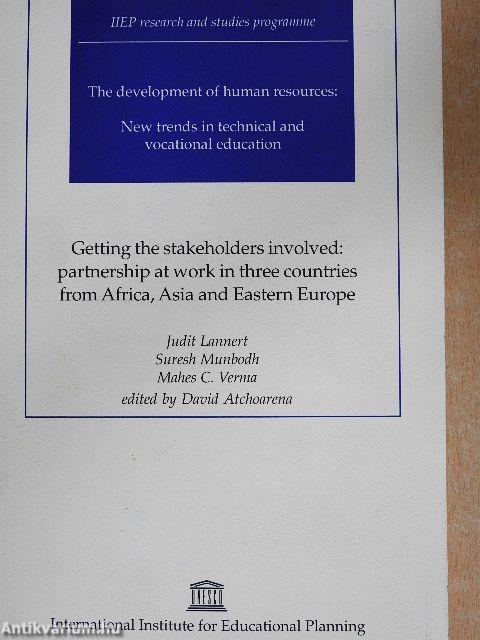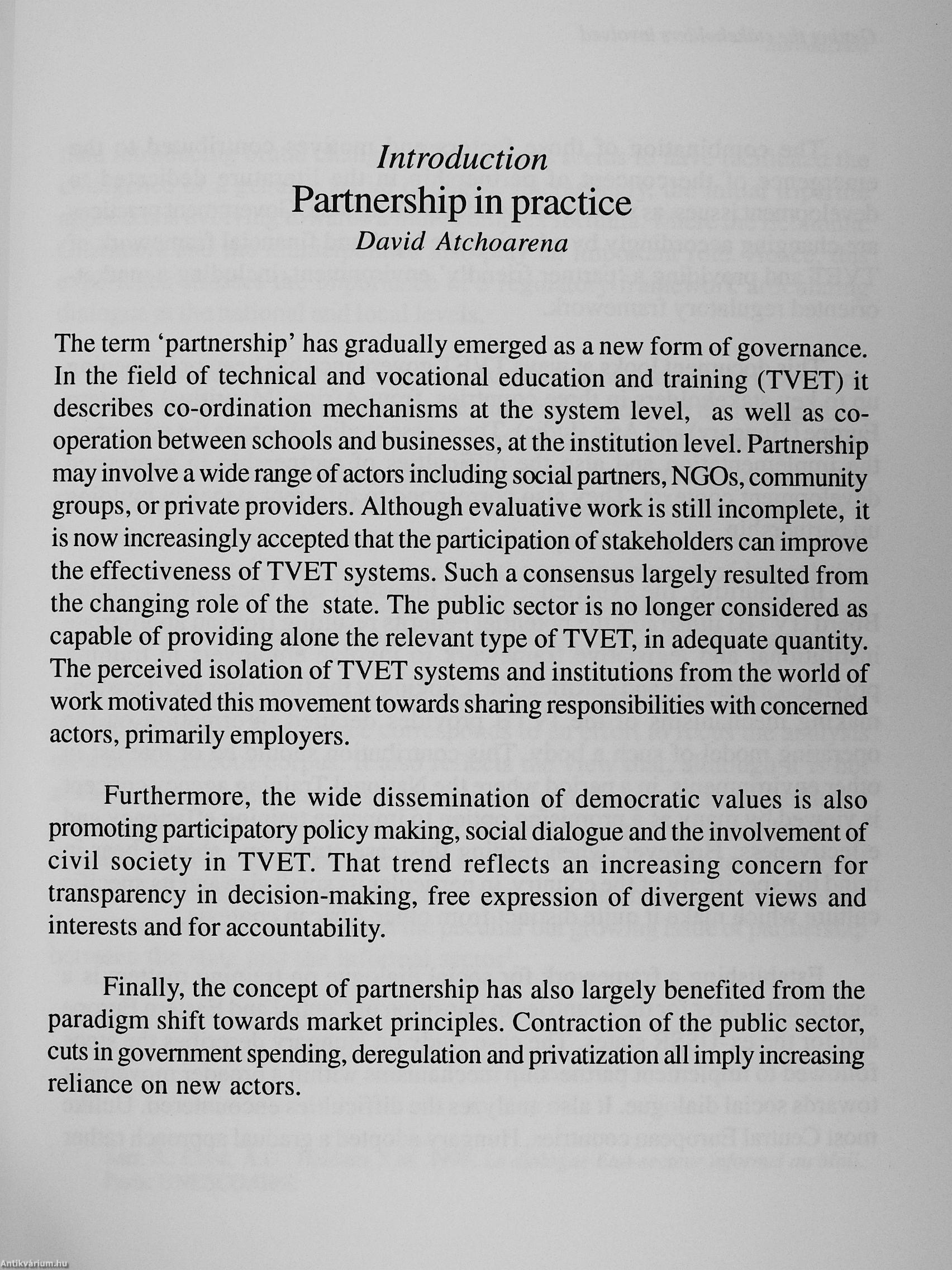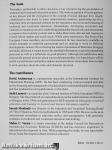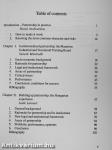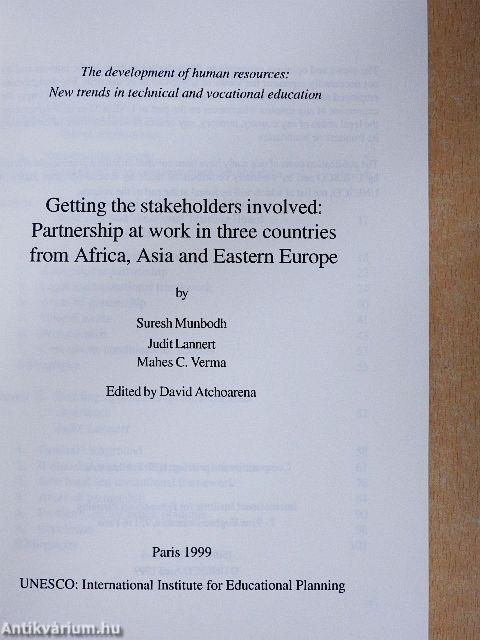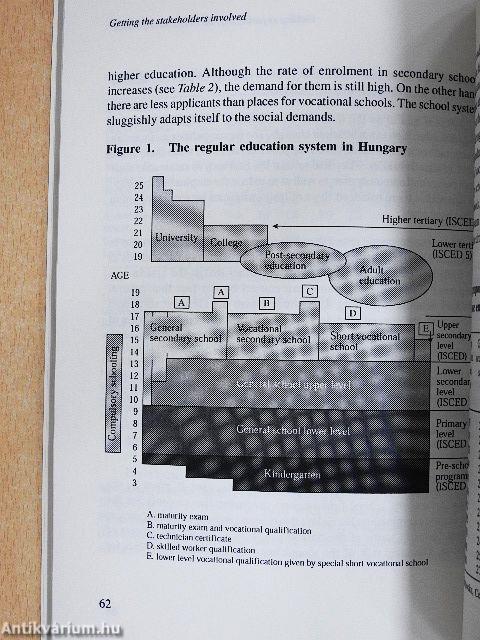1.104.798
kiadvánnyal nyújtjuk Magyarország legnagyobb antikvár könyv-kínálatát

VISSZA
A TETEJÉRE
JAVASLATOKÉszre-
vételek
Getting the stakeholders involved: Partnership at work in three countries from Africa, Asia and Eastern Europe
The development of human resources: New trends in technical and vocational education
| Kiadó: | Unesco: International Institute for Educational Planning |
|---|---|
| Kiadás helye: | Párizs |
| Kiadás éve: | |
| Kötés típusa: | Ragasztott papírkötés |
| Oldalszám: | 142 oldal |
| Sorozatcím: | IIEP research and studies programme |
| Kötetszám: | |
| Nyelv: | Angol |
| Méret: | 21 cm x 15 cm |
| ISBN: | 92-803-1181-6 |
| Megjegyzés: | Fekete-fehér ábrákkal. |
naponta értesítjük a beérkező friss
kiadványokról
naponta értesítjük a beérkező friss
kiadványokról
Előszó
TovábbFülszöveg
The book
Nowadays, partnership is often viewed as a way of improving the governance of technical and vocational education systems. The wide recognition of social partners as key players and the emergence of the concept of social dialogue have largely contributed to this trend. In many industrialised countries, partnership has for a long time been an important element for the regulation, provision and financing of technical and vocational education. Increasingly, developing economies and countries in transition are also establishing partnership frameworks and instruments to improve their training systems and to make them more relevant and responsive to both labour market and social needs. While some experiences, like those of the European Union members, are well documented, far less material is available on recent attempts to establish partnership and on making it work in different development contexts. By reviewing the recent experiences of Mauritius, Hungary and India, this book... Tovább
Fülszöveg
The book
Nowadays, partnership is often viewed as a way of improving the governance of technical and vocational education systems. The wide recognition of social partners as key players and the emergence of the concept of social dialogue have largely contributed to this trend. In many industrialised countries, partnership has for a long time been an important element for the regulation, provision and financing of technical and vocational education. Increasingly, developing economies and countries in transition are also establishing partnership frameworks and instruments to improve their training systems and to make them more relevant and responsive to both labour market and social needs. While some experiences, like those of the European Union members, are well documented, far less material is available on recent attempts to establish partnership and on making it work in different development contexts. By reviewing the recent experiences of Mauritius, Hungary and India, this book is meant to provide detailed information on specific partnership processes as well as a reflection on good practice. Although this publication does not provide general answers about successful partnership, it is hoped that it will be useful to practitioners and policy-makers anxious to know more about how to make it work and also about the risks and obstacles involved.
The contributors
David Atchoarena is a programme specialist at the International Institute for Educational Planning (HEP). He has been conducting various research activities on the financing and management of technical and vocational education and training and has produced several publications in this field.
Judit Lannert is a researcher at the National Institute of Public Education (NIPE) in Hungary. She has produced several publications on the transformation of education in Hungary in the 1990s and participated in HEP research on Managing vocational education and training in Central and Eastern European countries.
Suresh Munbodh was Director of the Industrial and Vocational Training Board (IVTB) of Mauritius from its establishment in 1989 until 1996. He now works as an international consultant in education policy and management, with particular emphasis on technical and vocational education and training.
Mahes C, Verma is a senior consultant at the Indian Council for Research on International Economic Relations (ICRIER) and has extensive experience in educational development in Asia. While preparing this study, he was team leader for an Asian Development Bank technical education
ISBN 92-803-1181-6
e(p Vissza
Témakörök
- Közgazdaságtan > Gazdaságpolitika
- Közgazdaságtan > Általános > Makroökonómia
- Közgazdaságtan > Közgazdasági elméletek > Egyéb
- Közgazdaságtan > Gazdaságtörténet > Tanulmányok
- Idegennyelv > Idegennyelvű könyvek > Angol > Közgazdaságtan > Gazdaságpolitika
- Idegennyelv > Idegennyelvű könyvek > Angol > Közgazdaságtan > Általános > Makroökonómia
- Idegennyelv > Idegennyelvű könyvek > Angol > Közgazdaságtan > Gazdaságtörténet > Tanulmányok
- Idegennyelv > Idegennyelvű könyvek > Angol > Közgazdaságtan > Közgazdasági elméletek > Egyéb



